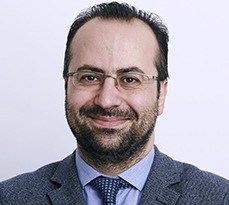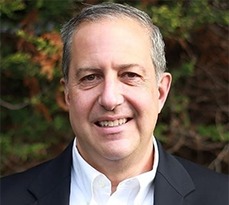Investor engagement on environmental, social and governance issues were examined at a conference organised by the Centre for Endowment Asset Management at Cambridge Judge and Principles for Responsible Investing.

How can investment practitioners engage on environmental, social and governance (ESG) issues with shareholders, governments and other stakeholders? That was the topic of a conference hosted on 17 May by the Centre for Endowment Asset Management (CEAM) at Cambridge Judge Business School, in conjunction with the Principles for Responsible Investment (PRI) platform supported by the United Nations.

Professor Elroy Dimson and Dr Oğuzhan Karakaş discussed the benefits of “Active ownership” of companies, the title of a 2015 research paper that looked at the practices of 613 listed US firms over the period 1999 to 2009. The paper, which has been honoured by several awards, documented gains by shareholders from engaging with investee companies on environmental and social issues.
The co-authors of that paper – Professor Elroy Dimson, Chairman of CEAM, Dr Oğuzhan Karakaş, University Senior Lecturer in Finance at Cambridge Judge, and Dr Xi Li of the London School of Economics – have co-authored a new working paper that looks beyond active ownership into the topic of “Co-ordinated engagements”. This new paper finds that a two-tier engagement strategy that combines lead investors with supporting investors is effective in achieving engagement goals and boosting company performance.
“It’s the first paper to study co-ordinated engagement in an international context,” Oğuzhan Karakaş told the conference at St. John’s College, Cambridge, which attracted more than 100 investment professionals. The benefits of such collaboration, he said, includes pooled resources, an “increased voice” for mid-sized firms, and the sharing of costs, risks and information.

The study looks at 31 engagement projects co-ordinated by PRI between 2007 and 2015, with each project involving on average 53 public companies around the world. PRI has more than 2,200 signatories from 67 countries, representing more than $80 trillion in assets.
The paper’s conclusion is that leadership is important in these collaborative engagements, with success rates up significantly when there is a lead investor heading up the initiative (especially when based in the same country as the target firm), while supporting investors are also vital (particularly when they are major investment institutions with scale and geographic breadth).
Among other presentations, the conference also heard about a preliminary research paper by Vaska Atta-Darkua, a PhD student at Cambridge Judge, on the impact of ethical exclusions from the Norwegian Sovereign Wealth Fund (GPFG). The fund divests from firms that do not meet its ethical criteria, such as extraction of fossil fuels or contributing to environmental damage. She finds that excluded firms lose on average 1.48 per cent of equity value after announcement of such exclusions, and these losses are not reversed in the short term.

A closing panel chaired by Alan Jagolinzer, Professor of Financial Accounting at Cambridge Judge, looked at how research can inform practice in the area of investor engagement. The Centre for Financial Reporting & Accountability at Cambridge Judge, which Alan directs, is now examining issues surrounding the reporting of sustainability issues.
The panel comprised: David Harris, Group Head of Sustainable Business at the London Stock Exchange Group; Carola van Lamoen, Head of Active Ownership at Robeco; Maria Lombardo, Head of Responsible Investment for EMEA at Invesco; and Rob Stewart, Head of Responsible and Charity Investing at Newton Investment Management. The panellists emphasised the importance of rigorous academic research for regulators and investors, as ESG integration into financial analysis rapidly becomes the new normal for many companies.
“Evidence-based responsible investing is increasing in relevance for the University and Cambridge Judge,” says Dr David Chambers, Academic Director of the Centre for Endowment Asset Management. “Research on ESG is one of the Centre’s core initiatives.”

